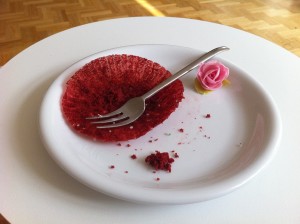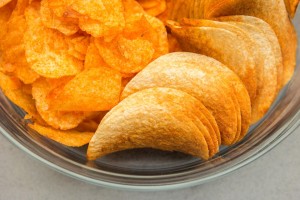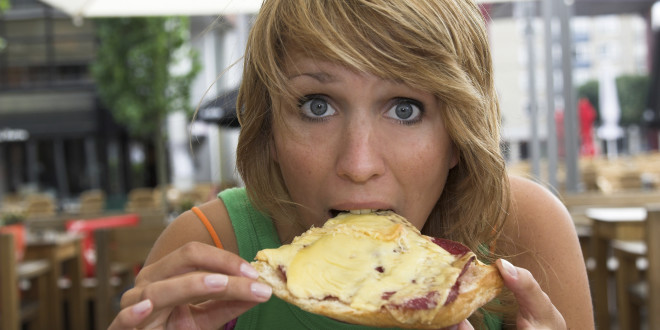by Michelle Sutton-Kerchner
February can be a challenging month. A gust of comfort-food cravings seems to blow in with every snow squall. Discover why it feels so good to eat with abandon (despite a full stomach) …
We eat to survive. Yet, there are many other scenarios when we turn to food—when socializing, bored, in need of distraction, or to soothe emotions. Food nourishes more than just our bodies. It can be a cultural experience or a very personal one. Some may even admit they “live to eat,” having such a lust for culinary delights.

Pleasure eating, also called hedonic eating, activates reward signals in the brain, which prompts you to eat more regardless of feeling physically full. Studies show the brain’s chemical reward system fires up the body’s response to pleasurable food. Although satiated, study participants were offered their favorite foods and still managed to eat them. This suggests the brain can override the body’s fullness cues to overeat enjoyable food. Less enjoyable food did not evoke the same override response, making clear why we don’t stuff ourselves with kale and carrots.
In the presence of foods high in fat, sugar, or salt, areas of the brain related to pleasure responded similarly to brain changes seen in drug or alcohol addicts, according to neuroimaging studies. The release of dopamine, strongly associated with the brain’s chemical reward system, was involved.
Tricked into Those Cookies (A Whole Bag Full)

This reaction grows stronger over time when in the presence of such foods, and declines upon actual consumption. Hence, its contribution to the addictive quality of junk foods like sweets. When the body needs energy, a hormone is produced by the stomach to stimulate hunger. Researchers found this same hormone is released in the presence of high-fat, high-sugar foods—even when the body does not require calories. The more we eat, the more we crave. This phenomenon is closely linked to body mass index. Some experts find it responsible for the obesity epidemic.
Here’s What to Do
The next time you feel out of control, a box of cookies in one hand and a syrup-infused latte in the other, try this:
- Take out one cookie (or must-have of choice) and step away from the box, preferably far away. Sit with your latte and one cookie. Enjoy it slowly and mindfully. The simple act of walking away can stop the instant gratification of the “only one more” approach. (Ever notice how the last bite often tastes best?)
- If you’re heading for the kitchen, first stop at the sink. Fill up a tall glass of water and drink it. We often mistake thirst for hunger. If you already knew you weren’t hungry but were craving an unhealthy treat, the water can deliver a “cold shower” effect.
-

Find another source of enjoyment, maybe even one that burns calories. Discover new interests that bring you joy—maybe even some that burn calories instead of packing them on. Do a yoga routine, hit the Center for a new Group Fitness class, watch a favorite TV show or movie, call a friend, take a walk, enjoy a hot bath.
- Brush and floss your teeth. The mint taste detracts from the flavor of food, taking away some of the allure. It also is less tempting to eat when your mouth is freshly cleaned. Do this right after dinner to help avoid snacking in the pre-bedtime hours when less calories are usually expended. You’ll have the added perk of happier dental appointments.
Understanding hunger can be empowering. Maybe all of us are a little helpless around a plate of our favorite eats. We are not wimps to our taste buds though. There is scientific reason for this allure. We are strong, resilient beings. We just need a few strategies on how to build a healthier environment where temptations are more than a refrigerator away.
Sources
“Eating for Pleasure, Not Hunger, Activates the Brain,” by at everydayhealth.com.
‘Hedonic Hunger’ Explained, or Why Junk Food Is Like Drugs for the Brain,” by Cherrill Hicks at nationalpost.com.
Image Credits
Dessert crumbs: pixabay.com/en/plate-fork-eat-cake-cutlery-food-661464/
Chips: pixabay.com/en/chips-snack-pringles-crisps-843993/
 Fitness & Wellness News Your Source for Fitness News, Wellness News, Health News, and Nutrition News!
Fitness & Wellness News Your Source for Fitness News, Wellness News, Health News, and Nutrition News!




